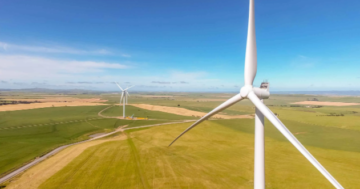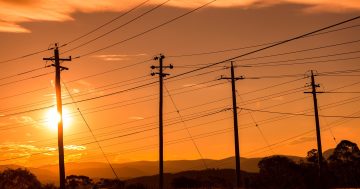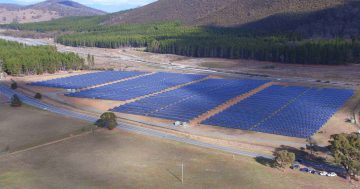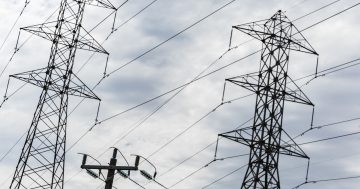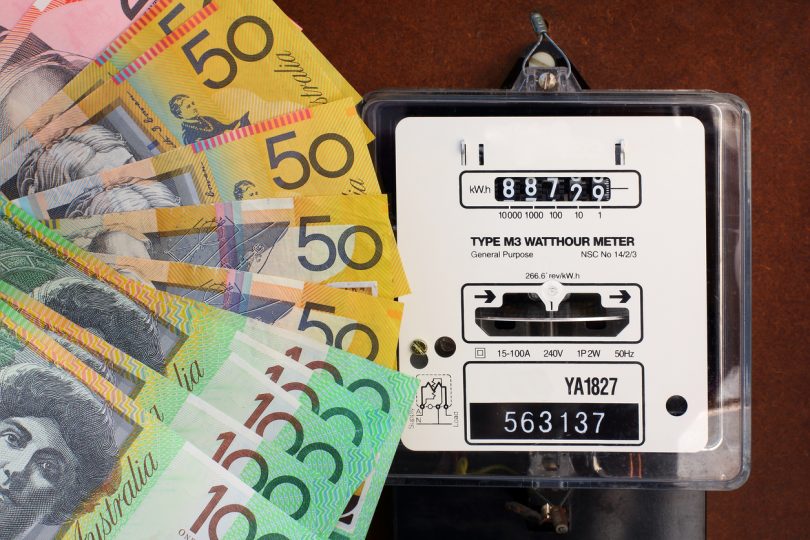
Power bills keep rising and shopping around for the best deal is unlikely to save you much, a new study has found. File photo.
The winter power bills may be proving a shock to households but ACT consumers should be thankful for a hybrid model that has kept prices lower than other fully deregulated jurisdictions, according to the Australia Institute.
As electricity bills continue to climb amid a plethora of energy retailers and deals, a new study from the Victorian Energy Policy Centre has found that consumers have switched off trying to find the cheapest deal and that in any case the savings to be had are negligible.
The study looked at more than 48,000 electricity bills from Victorian households and found switching retailers made very little difference at all. It found that, on average, those who did make the switch only saved about $45 a year, and were still a long way from landing the best available deal.
It also comes as the ACT Independent Competition and Regulatory Commission releases an issues paper as part of its price direction for ActewAGL to customers on its regulated retail tariffs for the four-year period from July 2020, in which it is also required to investigate whether changes are needed in the Territory to improve the comparability of electricity offers.
The Australia Institute’s Climate and Energy Program Director Richie Merzian says ACT consumers were lucky to have a semi-regulated electricity market with public interest in an electricity company that covers most retail customers.
He said it was a model that the Federal Government and others were looking to emulate on the back of last year’s ACCC report last year and moves for default prices or standing offers in deregulated jurisdictions.
“It shows we’re on the right path and that some government involvement can have benefits rather than be an additional burden for the average punter,” Mr Merzian said.
He said Australia Institute polling showed that most people blame the profiteering from energy companies first and the privatisation of electricity generation second for ‘power prices being so high.
But the third reason was poor policymaking from the Federal Government.
“When you combine that you have a lot of angst towards electricity companies, a real lack of trust that they’re looking after your interests, and then you have the Federal Government not having a role to sufficiently regulate to ensure households are best served,” Mr Merzian said.
“We still don’t have a climate and energy policy at a federal level six years after the carbon price was repealed … absent that we still have these ad hoc policies of intervening in the electricity sector here or there or ad hoc climate policy.”
Mr Merzian said there was no need for a multitude of companies and plans offering supposed discounts.
“It’s the same product,” he said. “You just need a good single deal on the table and it helps if the government has a hand in making sure that happens.”
He said a big chunk of the cost of electricity was the increase in the number of middle managers, lawyers, accountants, and marketing executives that energy companies have because they’re competing for selling the same exact product.
Mr Merzian said government involvement also made it easier to introduce changes that would benefit consumers such as demand response, which the Australia Institute is advocating.
In demand response, a household or a business can choose to reduce their electricity usage, particularly during high-priced peak demand times and high prices, and be rewarded for doing so.
“The benefits for the grid is that you have lower demand, which means that you’re less likely to either scrounge around for additional generation or force blackouts,” Mr Merzian said.
“Consumers also benefit because they’ll save money and won’t have to use as much electricity, especially when it’s expensive, and they’ll get rewarded as well.”
But the big electricity companies don’t want it because it reduces demand for their product.
A Queensland pilot had shown it would work and would only require a rule change to make it happen.
The other big policy change that would benefit consumers, especially renters, would be a serious attempt at energy efficiency in the country’s housing stock.
Mr Merzian said as part of a national climate and energy policy it would assist in cutting emissions, and reduce demand and the amount of generation needed on the grid.
“The Government has a nominal energy efficiency productivity plan but it is failing and our housing stock is not keeping up to where it could be,” he said.
The ICRC must release its final report by 5 June 2020.











